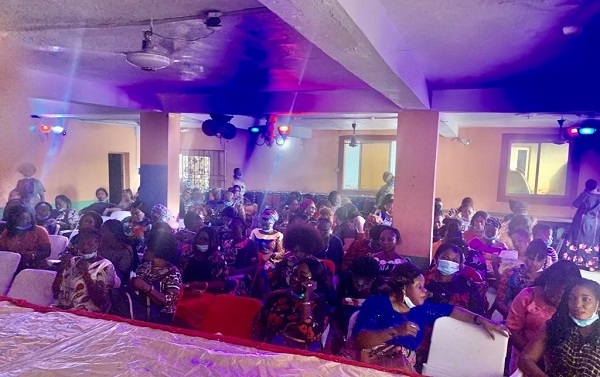
As part of efforts to give women more voice in the agricultural sector, the Federal Ministry of Agriculture and Rural Development (FMARD) has trained women in the southeastern region on climate change mitigation and adaptation strategies.
Speaking during the meeting today (February 21) in Owerri, Imo State, the Minister of Agriculture and Rural Development, Dr. Mohammad Abubakar, reaffirmed the ministry’s commitment to gender mainstreaming at all levels of the agricultural sector, stating that the approved 2019 National Gender Policy thrust is to achieve gender-based reforms that cut across all value chains of the agricultural sector.
Represented at the fourth edition of the regional workshop on ‘Gender Mainstreaming, Climate Change Mitigation and Adaptation Strategies for Women Farmers’, by the ministry’s director in Imo State, Pastor Chris Iwuchukwu, Abubakar explained that the policy is hinged on gender equity and equality for optimum productivity in the agricultural sector.
He explained that this will ultimately ensure commitment to gender mainstreaming at all levels of the sector, which is seen as a tool for achieving gender-based reforms and increasing productivity by men and women along all the value chains in the sector.
The minister said the workshop is targeted, innovative and timely when viewed from the outcomes of the recent 2021 COP 26 climate change conference held in Glasgow, United Kingdom.
“Nigeria’s agriculture is most vulnerable and susceptible to the impacts of climate change. Indeed, it is rain-dependent. Any change in the weather pattern, in terms of the amount, intensity, duration and its on-set affect farmers’ decisions on the when, where and what type of crops and inputs as well as other cultural operations in the value chain. Climate change and variability particularly affect women who constitute the most vulnerable among the farming communities.
“Available statistics indicate that women constitute about 80 per cent of the labour force involved in agricultural production and grow up to 80 per cent of the food in Nigeria. Overall, they constitute about 43 per cent of the agricultural labour force in developing countries. Yet, women farmers face various challenges and needs, especially climate change and variability, access to information and technologies,” he said.
Abubakar explained that the choice of Imo as one of the pioneer states to kick-start the series of outlined workshops is down to the state’s being one of the frontline rainforest agro-ecological zones in Nigeria facing ecological challenges due to the impact of climate change.
While admonishing the participants to pay rapt attention during the training workshop, the minister expressed optimism that the workshop will expose them to climate change adaptation and mitigation strategies that would help to build and enhance their resilience to threats and impacts of climate in agricultural production.
In his welcome remarks, the commissioner for agriculture and natural resources in Imo State, Dr. Okorochukwu Barthy said that the essence of the mitigation and adaptation strategies’ workshop for women farmers is to ensure an increase in food sufficiency which will, in turn, translate to food security and economic growth in the country.
He said that to improve food sufficiency, especially in the southeast, “we must get more women farmers that will produce more food” and added that climate change portends the need for mitigation and adaptation to ensure more farming seasons in a given year.
The commissioner applauded the women for the crucial roles they play in food production, processing and marketing, advising them to learn the new strategies that will help develop their resilience to mitigate the impacts of climate change.
Earlier, the ministry’s director of special duties, Mrs. Faust Lawal represented by the head, gender unit, in the ministry, Mrs. Ifeoma Anyanwu, recalled that the thrust of the National Gender Policy is to reduce the vulnerability of women in agriculture, especially in their access to inputs, feeds, finance and information so that they can contribute meaningfully to agriculture.
She also informed that the policy focus on addressing the disparity in the sector, building skills and competencies of the Nigerian women farmers in line with SDGs No. 13, which specifically addresses climate change and its impacts.
A statement by the ministry’s director of information, signed by his deputy, Mrs Eno Olotu, said over 150 women from Imo, Abia, Enugu, Ebonyi and Anambra states, representing the southeast geopolitical zone were given clean stoves ‘starter’ packs.

